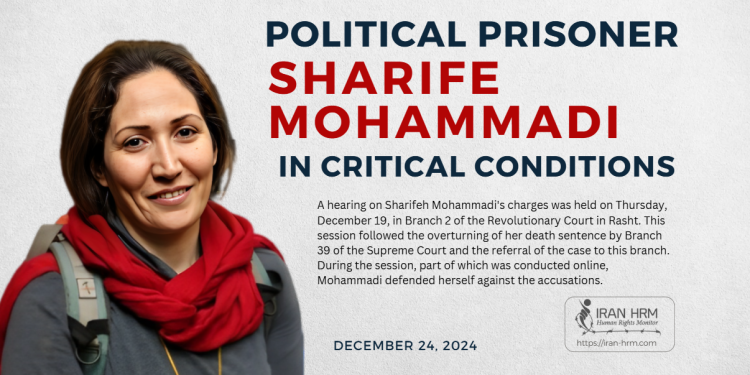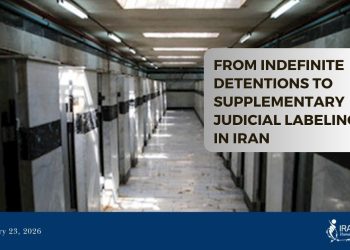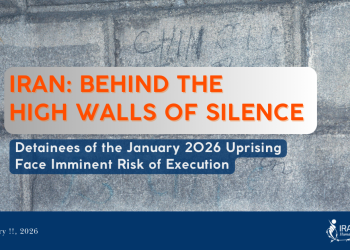In early July 2024, Branch 1 of the Revolutionary Court in Rasht tried labor activist Sharifeh Mohammadi on charges of Baghi (armed rebellion against the Islamic ruler) and sentenced her to death.
A hearing on Sharifeh Mohammadi’s charges was held on Thursday, December 19, in Branch 2 of the Revolutionary Court in Rasht. This session followed the overturning of her death sentence by Branch 39 of the Supreme Court and the referral of the case to this branch. During the session, part of which was conducted online, Mohammadi defended herself against the accusations.
Sharifeh Mohammadi was arrested by security agents on December 4, 2023, and detained in solitary confinement for several months. At the time of her arrest, she was charged with “propaganda against the regime.” She was subjected to prolonged physical and psychological torture to extract forced confessions. Judicial authorities later escalated the charge to Baghi. Based on this accusation, Branch 1 of the Revolutionary Court in Rasht sentenced her to death.
While in detention, Mohammadi was deprived of basic prisoners’ rights, such as in-person visits and phone calls. She was denied contact with her family, especially her child, for extended periods. The extent of physical and psychological torture inflicted by Ministry of Intelligence officials raised concerns among prison authorities, fearing for her life. She was accused of membership in the Coordination Committee for the Establishment of Labor Unions, which security forces allege is affiliated with the Komala organization.
Intelligence officials have provided no evidence to substantiate this accusation, relying solely on interrogation documents extracted from Mohammadi.
The denial of a prisoner’s right to phone calls and visits with their family violates several international human rights laws and instruments. This labor activist was also deprived of the right to appoint legal counsel during her solitary confinement.
The Iranian regime uses alleged ties with foreign organizations and governments as pretexts to exert pressure on human rights activists in Iran. Particularly following the fall of Bashar al-Assad, and numerous blows to the regime’s regional proxies such as Hezbollah and Yemen’s Houthis, the regime has escalated executions and medieval sentences.







